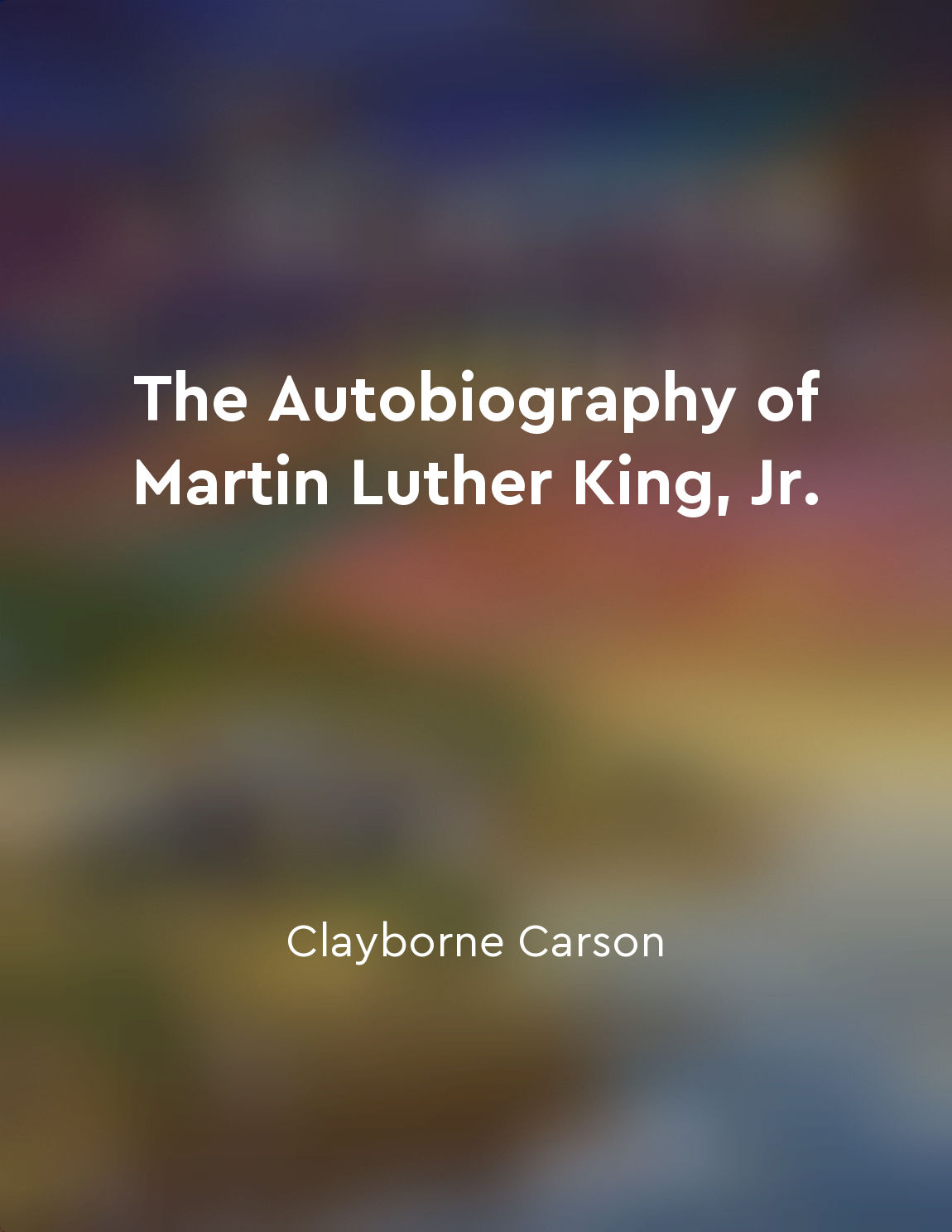Assassinated in 1968 from "summary" of The Autobiography of Martin Luther King, Jr. by Clayborne Carson
On April 4, 1968, Martin Luther King, Jr. was shot and killed while standing on the balcony of the Lorraine Motel in Memphis, Tennessee. The news of his assassination sent shockwaves throughout the nation and the world. King had been in Memphis to support a strike by African American sanitation workers, highlighting his commitment to economic justice as well as civil rights. King's assassination marked a tragic end to his lifelong struggle for racial equality and social justice. Throughout his career, he had faced threats and violence, but his unwavering commitment to nonviolent resistance had always prevailed. His death was a devastating blow to the civil rights movement and to all those who had been inspired by his message of love and unity. In the aftermath of King's assassination, riots erupted in cities across the United States as people grappled with their grief and anger. The loss of King was felt deeply by millions of Americans who saw him as a beacon of hope and a leader in the fight for justice. His death was a stark reminder of the dangers faced by those who dared to challenge the status quo and work for a more just society. Despite his death, King's legacy lived on in the hearts and minds of those who continued to fight for civil rights and equality. His words and actions inspired a new generation of activists who carried on his work and sought to fulfill his vision of a world free from discrimination and oppression. King's assassination may have silenced his voice, but it only served to amplify his message and ensure that his dream would never die.Similar Posts

Early experiences with discrimination
Growing up in the segregated South, I encountered discrimination at a young age. I vividly remember the first time I experience...
The White House was like a second home to me
I had spent so much time at the White House that it felt like a second home to me. From the moment I first set foot in that his...

Continued activism
After my stand on the bus that day, I knew that I had to keep fighting for what was right. I couldn't just sit back and let thi...

Bus boycott and community support
The bus boycott was not just about refusing to ride the segregated buses. It was also about building a community of support and...

Assassinated in 1968
On April 4, 1968, Martin Luther King, Jr. was shot and killed while standing on the balcony of the Lorraine Motel in Memphis, T...
Influence of family and mentors on Malcolm X's development
Malcolm X's development was significantly shaped by the influence of his family and mentors. Growing up, he witnessed his paren...
